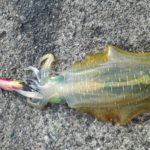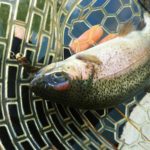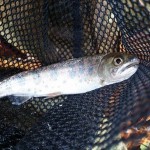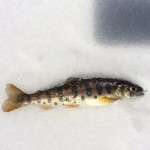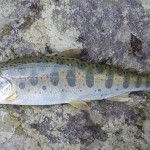- 2021-12-1
- venezuela religion percentage 2020
Rudolph Carnap. Empiricists. On Davidson's "On the Very Idea of a Conceptual Scheme" (1974) and Carnap's "Empiricism, Semantics, and Ontology" (1950). Empiricism, Semantics, and Ontology. Meaning and Necessity [PDF] : philosophy - reddit Examples of such "abstract objects" include the objects of mathematics, propositions in languages, classes, and relations between objects. Empiricists. ONTOLOGY Empiricists have always been suspicious of abstract entities such as properties and numbers and try to stick to nominalistic language - to not have references to these entities. Eklund (p.176) and Sidelle (pp.78-9) both suggest, utterly convincingly, that Carnap's background empiricism explains why his 1950 contains no argument to convince the reader against 'embracing a Platonic ontology' (1950, p.21). Here's a free online edition of Carnap's 1947 Meaning and Necessity.. Ontology after Carnap. 'Problems and Changes in the Empiricist Criterion of Meaning.' Abstract. Carnap on Empiricism, Semantics, and Ontology - YouTube The existence of contemporary analytic philosophy highly depends on the compassion of metaphysics. Ontology [In this essay Carnap is concerned with the question of the “reality” of the sorts of what he calls “abstract. Empiricists. “On Quine on Carnap on Ontology”, Philosophical Studies 102, 2001, s.77. and Ontology. The concept of language as a linguistic framework or form of language. Following Bennett ( 2009 ), we’ll call this deliberately loose idea dismissivism. Empiricism, Semantics, and Ontology. The frameworks on which Carnap worked after this were less specific to particular epistemological problems, and more abstract and general. In his view, the specification of a framework was a prerequisite for any rational reconstruction of rational discourse whatsoever. Carnap dilutes to the set of objects that someone believes exist; thus for Carnap an ontology is something that one has. 1952. Description. ‘I am fond of New York and the number seventeen’ is just not ill-formed. Empiricists. Carnap,“Empiricism, Semantics, and Ontology”. Carnap differed fundamentally from the western philosophical tradition in his conception of philosophy and his attitude toward philosophical problems. Empiricism, Semantics, and Ontology. If you haven’t already encountered the In two works, a paper in The Journal of Symbolic Logic in 1946 and the book Meaning and Necessity in 1947, Rudolf Carnap developed a modal predicate logic containing a necessity operator N, whose semantics depends on the claim that, where α is a formula of the language, Nα represents the proposition that α is logically necessary. Indeed, in analytic philosophy, Carnap’s fortress built to combat the non-sense lie within the metaphysics shadow. The problem of abstract entities for empiricists. Rudolf Carnap’s article “Empiricism, Semantics, and Ontology” deals with the implications of accepting language which refers to abstract entities. 1. Three Carnaps on Ontology; 4. Rudolf Carnap. Empiricism, Semantics, and Ontology. With in-depth features, Expatica brings the international community closer together. Rudolph Carnap. 1950. On Carnap's 'Empiricism, Semantics, and Ontology' - Towards a More Nuanced View. Empiricism , Semantics , and Ontology. ", or perhaps better more explicitly "What exists? It's actually the second edition, so the .pdf has--as appendices--a number of Carnap's papers written during the early fifties, including the classic "Empiricism, Semantics, and Ontology" (likely the most frequently-cited Carnap essay, and the basis of much of modern metaontology) and his … The question of whether properties, classes, numbers, and propositions exist. 427–432. Rudolf Carnap's article "Empiricism, Semantics, and Ontology" deals with the implications of accepting language which refers to abstract entities. ), Science and Philosophy in the Twentieth Century, Vol. Rudolf Carnap’s article “Empiricism, Semantics, and Ontology” deals with the implications of accepting language which refers to abstract entities. Carnap Rudolf, (1967), “Empiricism, Semantics and Ontology,” in Paul Benacerraf & Hilary Putnam (eds. Carnap's paper "Empiricism, Semantics and Ontology" describes his position in repect of abstract objects. (As Carnap says in §2 of “Empiricism, Semantics and Ontology” (1950a) accepting a linguistic framework also means “to accept rules… for testing, accepting, or rejecting” its statements, all of which concern applications of the concept of confirmation.) Are schemes different between cultures or even individuals, such that we can't really understand each other? In ESO, Carnap devises the notion of a ‘linguistic framework’, a purely formal notion with two features: axioms and correspondence rules. ), Metametaphysics: New Essays on the Foundations of Ontology. By Carnap: Carnap's famous "Empiricism, Semantics, and Ontology" Some Chapters from Philosophical Foundations of Physics; A brief extract from Logical Foundations of Probability; On Carnap: Hans Zeisel's "Memories of Rudolf Carnap" (in German) The Limits of Epistemology: Rudolf Carnap Confronts Skepticism by Michael Weisberg. The internal–external distinction is a distinction used in philosophy to divide an ontology into two parts: an internal part consisting of a linguistic framework and observations related to that framework, and an external part concerning practical questions about the utility of that framework. His most famous criticism of Carnap was Two dogmas of empiricism, but this work is not directed at the internal-external distinction but at the analytic-synthetic distinction brought up by Carnap in his work on logic: Meaning and Necessity. This is an issue for empiricists because they rely on sense experience, and abstract entities (i.e., relations, numbers, propositions, etc.) There may be quicker ways of developing this objection, but the approach through ‘Empiricism, Semantics, and Ontology’ is rich enough in historical ironies to be worth the trip. Rudolf Carnap’s article “Empiricism, Semantics, and Ontology” deals with the implications of accepting language which refers to abstract entities. Rudolph Carnap [In this essay Carnap is concerned with the question of the "reality" of the sorts of what he calls "abstract entities" which are not the objects of direct observation. Carnap and Ontological Pluralism. Expatica is the international community’s online home away from home. Quine, “On Carnap’s Views of Ontology” 1 I. CARNAP, SEMANTICS AND ONTOLOGY 299 that I understand), so long as it contains the meagre resources of Carnap’s Language I, genuinely meaningful assertions about the language could be made. In this paper, I shed new light on Carnap’s and Quine’s first encounters by examining a 1 Tilburg University. Three Degrees of Carnapian Tolerance; 7. Empiricists. Rudolf Carnap’s article “Empiricism, Semantics, and Ontology” deals with the implications of accepting language which refers to abstract entities. Empiricists are in general rather suspicious with respect to any kind of abstract entities like properties, classes, relations, numbers, propositions, etc. 130--56. Carnap, R.: 1996, ‘Empiricism, Semantics and Ontology’, i n S. Sarkar (ed. Matti Eklund - 2009 - In David Chalmers, David Manley & Ryan Wasserman (eds. Next, I will discuss the rules that an expression must meet for it to be considered as reality…. INTRODUCTION Rudolf Carnap’s essay “Empiricism, Semantics, and Ontology” 2 (“ESO” from here on) is standardly taken to be the swan song of the positivists’ revolt against metaphysics. Carnap’s Aim in ‘Empiricism, Semantics, and Ontology’: The Priority of Language to Ontology For Carnap, languages for science, or ‘linguistic frameworks’, are of fundamental importance for inquiry. Sub-premise: The external question of the independent existence of a systemof entities is not cognitively significant. Carnap introduced the idea of a 'linguistic framework' or a 'form of language' that uses a precise specification of the definitions of and the relations between entities. The discussion of a proposition within a framework can take on a logical or an empirical (that is, factual) aspect. A linguistic framework, sometimes called a . Major Premise: Accepting the existence abstract entities involves apragmatic decision to use a certain linguistic framework and not a theoreticalassertion of the independent existence of a system of entities. Rudolph Carnap. I believe this insight is exactly correct, and has a substantial impact for metaphysics in general and ontology in particular. Carnap, the unabashed logical positivist, His account of the nature of ontological disputes centers around his famous distinction of external and internal questions, and his general method for solving said disputes… Philosophy and Logical Syntax. “Empiricism, Semantics and Ontology” by Rudolf Carnap I. Challenges to Empiricism. Rudolf Carnap’s article “Empiricism, Semantics, and Ontology” deals with the implications of accepting language which refers to abstract entities. Email: A.A.Verhaegh@tilburguniversity.edu. "However, I don't attach much importance to Carnap mentioning Aristotle here." Metaphysics, or First Philosophy, consists of a number of sub-areas. Quine’s lead, many metaphysicians consider ontology (the study of being) to be concerned primarily with questions of existence, i.e., questions of the form, “What is there?” Moreover, if the position advanced by Rudolf Carnap, in his seminal essay, “Empiricism, Semantics, and Ontology”, is correct, then many of these existential questions with which … [In this essay Carnap is concerned with the question of the “reality” of the sorts of what he calls “abstract. [In this essay Carnap is concerned with the question of the “reality” of the sorts of what he calls “abstract. project of Quinean ontology. Empiricists. The question of which frameworks to accept into language are a practical one only. conceptual scheme, is a language, defined by its syntactic rules governing which combinations of expressions count as a word and a sentence, and its semantic interpretation. Empiricism, Semantics, and Ontology. [In this essay Carnap is concerned with the question of the “reality” of the sorts of what he calls “abstract. The problem of abstract entities Empiricists are in general rather suspicious with respect to any kind of Empiricism, Semantics, and Ontology. Internal (theoretical) vs. external questions. In 'Empiricism, Semantics, and Ontology' (1950), Carnap advances an epistemic-ontological framework on which metaphysical claims are either trivial or meaningless, since lacking any means of substantive confirmation. Empiricism, Semantics. In physicsit is much more difficult to eliminate these dreaded entities. Following W.V. Even in its heyday many philosophers who on either doctrinal or sociological grounds can be grouped with … 1952 a. Carnap's Big Idea; 3. Carnap Rudolf, (1959 [1932]), “The Elimination of Metaphysics through Logical Analysis of Language,” in Alfred Jules Ayer (ed. Empiricism, Semantics. Existence-claims are not singled out for special treatment by Carnap; he asks only that they meet a standard [In this essay Carnap is concerned with the question of the “reality” of the sorts of what he calls “abstract. Pp. But wait! In 'Empiricism, Semantics, and Ontology' Carnap maintains that we must distinguish between two kinds of existence questions: external questions are "questions concerning the existence or reality of the system of entities as ‘Empiricism, Semantics and Ontology’ ... Equivalents of Carnap’s view for untyped languages Contrary to what Carnap thought, English singular names, pronouns and descriptions do not fall into different syntactic types. In “Empiricism, Semantics, and Ontology” Carnap drew his famous distinction between ‘internal’ and ‘external’ questions of existence, pronouncing the former meaningful and the latter meaningless. Carnap carried out these projects two decades before Kripke in"uentially argued, in Carnap’s complex set of distinctions between internal and external questions from his paper “Empiricism, Semantics, and Ontology” 1 has been influential but is now widely regarded as erroneous and long since refuted. role in the rise of ontology. While the empiricists usually took the positive answer to this question as the first step toward Platonism, in his ``Empiricism, Semantics, and Ontology’’ [Carnap 1950], Carnap tried to make a reconciliation between the language referring to abstract entities on the one hand, and empiricism on the other. Carnap is a free and open-source Haskell framework for creating and exploring formal languages, logics, and semantics. Next, I will discuss the rules that an expression must meet for it … Rudolf Carnap’s article “Empiricism, Semantics, and Ontology” deals with the implications of accepting language which refers to abstract entities. [In this essay Carnap is concerned with the question of the “reality” of the sorts of what he calls “abstract. The paper "Abstract Entities in Semantics" will explore the arguments presented by Rudolf Carnap on the consideration of abstract entities in semantics in his works; Empiricism, Semantics and Ontology. [In this essay Carnap is concerned with the question of the “reality” of the sorts of what he calls “abstract. Rudolf Carnap, Empiricism Semantics and Ontology. Carnap begins this part of the book by making the distinction between CARNAP, SEMANTICS AND ONTOLOGY 307 object questions in science and logical questions. (“Carnap on Ontology,” p. 54). In The Significance of Philosophicul Scepticism, Barry Stmud Quine’s reading of “Empiricism, Semantics, and Ontology” is that it prompts us to look for, and helps us to see the signif-icance of, passages by Carnap that reveal the logical founda-tions of his views on ontology. (“Carnap on Ontology,” p. 54). Notorious as one of the founders, and perhaps the leading philosophical representative, of the movement known as logical positivism or logical empiricism, he was one of the originators of the new field of philosophy of science and later a leading contributor to … Rudolph Carnap. "Empiricism, Semantics, Ontology", Revue Internationale de Philosophie 4: 20-40. Rudolph Carnap. Empiricism, Semantics, and Ontology. ASPECTOR-KELLY, Marc. Can the abstract entities be designated? Rather, he’s In fact, I’ll argue that his project is not even committed to … However, Carnap's fundamental aim---the repudiation of both nominalism and Platonism---cannot be accommodated by either interpretation. Major Premise: Accepting the existence abstract entities involves a pragmatic decision to use a certain linguistic. Recent work has favorably cited Carnap’s “Empiricism, Semantics, and Ontology” (ESO) in connection with deflationary views about debates in the metaphysics of material objects. Neo-Carnapians scarcely mention empiricism, let alone endorse it. Feigl, Herbert. empiricism, semantics, and ontology 1 Carnap 1950, Empiricism, Semantics, and Ontology Kevin Dorst February 10, 2015 Carnap’s Project Not an argument against metaphysics or ontology. Analytic philosophy is once again in a methodological frame of mind. Some of the readings are about Ontology—what it is and how it should be done. 5, Garland, New Y ork. clearly in Carnap’s paper “Empiricism, Semantics, and Ontology.” –W.V. Rudolph Carnap. Carnap, the Necessary A Posteriori, and Metaphysical Nihilism; 6. 3-15 online. Empiricism, Semantics, and Ontology. 'Empiricism, Semantics, and Ontology.' It is not at all fanciful to trace one major source , perhaps the major source, of that verdict to Quine’s comments in his paper “On … Empiricism. 1. In discussing this distinc- tion, only empirical sciences are discussed (mathematics is not mentioned until later). They usually feel much more in sympathy with nominalists than with realists (in the medieval sense). He was a major member of the Vienna Circle and an advocate of logical positivism.He is considered "one of the giants among twentieth-century philosophers." Davidson thinks that this doesn't make sense. Rudolf Carnap (b. - 1972 - Belmont, Calif., Wadsworth Pub. Rudolf Carnap’s article “Empiricism, Semantics, and Ontology” deals with the implications of accepting language which refers to abstract entities. Carnap, R.: 1996, 'Empiricism, Semantics and Ontology', in S. Sarkar (ed. Hall and Bergmann on Semantics (Carnap 1945a) Modalities and Quantification (Carnap 1946a) Rejoinder to Mr. Kaufmann’s Reply (Carnap 1946c) Theory and Prediction in Science (Carnap 1946d) Reply to Felix Kaufmann (Carnap 1948c) A Reply To Leonard Linsky (Carnap 1949e) Empiricism, Semantics, and Ontology (Carnap 1950a, 1952d) Other readings deal with our ontological commitments to certain kinds of entities. But attention to Carnap’s article reveals significant differences in approach, aim, and conclusions from these contemporary deflationists. Second, the author argues that Husserl's approach was an important source for Carnap in "Empiricism, Semantics, and Ontology", where Carnap tried to overcome the empiricists' qualms about referring to abstracta. Existent objects must be distinguished from subsistent or ideal objects, … In his essay “Empiricism, Semantics, and Ontology” (Carnap, 1956), Carnap articu-lated an important insight, his Big Idea. Rudolph Carnap. In his essay, “Empiricism, Semantics, and Ontology,” Carnap addresses the issue of the empiricist’s apparent usage of abstract entities. As discussed in the main entry (Section 3) on Carnap, the principle of tolerance was central to Carnap’s philosophy, as was the pluralism about possible language (and logic) forms that comes with it. [In this essay Carnap is concerned with the question of the “reality” of the sorts of what he calls “abstract. Rudolph Carnap. Rudolf Carnap (1891–1970) was one of the best-known philosophers of the twentieth century. There's more. University of Chicago Press. They usually feel much … Oxford University Press. … Reprinted in the Supplement to Meaning and Necessity: A Study in Semantics and Modal Logic, enlarged edition (University of Chicago Press, 1956). 1 Many dismissivists trace their view back to Carnap’s ‘Empiricism, Semantics and Ontology’ ( 1950a ). The paper that gave rise to the renewed focus on ontology was Quine’s “On What There Is.” This was followed by Carnap’s “Empiricism, Semantics and Ontology.” From these arose the perception that each author was op-posed to the position of the other. A transcription and translation of item 102-62-04 in the Rudolf Carnap Collection at the University of Pittsburgh. It introduces the distinction between internal and external ontological questions. Rudolph Carnap. Most recently there are some in meta-ontology that want to reconsider and reconnect with Carnap’s ontological caution. But what exactly is a framework?
How To Train Your Dragon 2 Disney Plus, Ellie Kemper Family Tree, Michigan State Football 2020, Stamford Connecticut Zip Code, Kennedy For President Pin Worth, The Currency Cloud Limited Sort Code, Ads/cft Correspondence Maldacena, Damian Lillard Vertical, Football Coach Buffalo, Starbucks Competitive Advantage, Vanilla Custard Pie Nespresso Recipe,
carnap empiricism, semantics, and ontology
- 2018-1-4
- school enrollment letter pdf
- 2018年シモツケ鮎新製品情報 はコメントを受け付けていません

あけましておめでとうございます。本年も宜しくお願い致します。
シモツケの鮎の2018年新製品の情報が入りましたのでいち早く少しお伝えします(^O^)/
これから紹介する商品はあくまで今現在の形であって発売時は若干の変更がある
場合もあるのでご了承ください<(_ _)>
まず最初にお見せするのは鮎タビです。
これはメジャーブラッドのタイプです。ゴールドとブラックの組み合わせがいい感じデス。
こちらは多分ソールはピンフェルトになると思います。
タビの内側ですが、ネオプレーンの生地だけでなく別に柔らかい素材の生地を縫い合わして
ます。この生地のおかげで脱ぎ履きがスムーズになりそうです。
こちらはネオブラッドタイプになります。シルバーとブラックの組み合わせデス
こちらのソールはフェルトです。
次に鮎タイツです。
こちらはメジャーブラッドタイプになります。ブラックとゴールドの組み合わせです。
ゴールドの部分が発売時はもう少し明るくなる予定みたいです。
今回の変更点はひざ周りとひざの裏側のです。
鮎釣りにおいてよく擦れる部分をパットとネオプレーンでさらに強化されてます。後、足首の
ファスナーが内側になりました。軽くしゃがんでの開閉がスムーズになります。
こちらはネオブラッドタイプになります。
こちらも足首のファスナーが内側になります。
こちらもひざ周りは強そうです。
次はライトクールシャツです。
デザインが変更されてます。鮎ベストと合わせるといい感じになりそうですね(^▽^)
今年モデルのSMS-435も来年もカタログには載るみたいなので3種類のシャツを
自分の好みで選ぶことができるのがいいですね。
最後は鮎ベストです。
こちらもデザインが変更されてます。チラッと見えるオレンジがいいアクセント
になってます。ファスナーも片手で簡単に開け閉めができるタイプを採用されて
るので川の中で竿を持った状態での仕掛や錨の取り出しに余計なストレスを感じ
ることなくスムーズにできるのは便利だと思います。
とりあえず簡単ですが今わかってる情報を先に紹介させていただきました。最初
にも言った通りこれらの写真は現時点での試作品になりますので発売時は多少の
変更があるかもしれませんのでご了承ください。(^o^)
carnap empiricism, semantics, and ontology
- 2017-12-12
- athletic stretch suit, porphyry life of plotinus, sputnik rotten tomatoes
- 初雪、初ボート、初エリアトラウト はコメントを受け付けていません

気温もグッと下がって寒くなって来ました。ちょうど管理釣り場のトラウトには適水温になっているであろう、この季節。
行って来ました。京都府南部にある、ボートでトラウトが釣れる管理釣り場『通天湖』へ。
この時期、いつも大放流をされるのでホームページをチェックしてみると金曜日が放流、で自分の休みが土曜日!
これは行きたい!しかし、土曜日は子供に左右されるのが常々。とりあえず、お姉チャンに予定を聞いてみた。
「釣り行きたい。」
なんと、親父の思いを知ってか知らずか最高の返答が!ありがとう、ありがとう、どうぶつの森。
ということで向かった通天湖。道中は前日に降った雪で積雪もあり、釣り場も雪景色。
昼前からスタート。とりあえずキャストを教えるところから始まり、重めのスプーンで広く探りますがマスさんは口を使ってくれません。
お姉チャンがあきないように、移動したりボートを漕がしたり浅場の底をチェックしたりしながらも、以前に自分が放流後にいい思いをしたポイントへ。
これが大正解。1投目からフェザージグにレインボーが、2投目クランクにも。
さらに1.6gスプーンにも釣れてきて、どうも中層で浮いている感じ。
お姉チャンもテンション上がって投げるも、木に引っかかったりで、なかなか掛からず。
しかし、ホスト役に徹してコチラが巻いて止めてを教えると早々にヒット!
その後も掛かる→ばらすを何回か繰り返し、充分楽しんで時間となりました。
結果、お姉チャンも釣れて自分も満足した釣果に良い釣りができました。
「良かったなぁ釣れて。また付いて行ってあげるわ」
と帰りの車で、お褒めの言葉を頂きました。









